A trend has been identified involving SMS text messages. Customers and non-customers are reporting receiving an SMS text either claiming their First Bank & Trust account has been locked or suspended, they attempted to send a wire transfer, a phone number tied to their account has been changed, or Zelle payments. The message includes:
- A link, which encourages the individual to click the link. Once clicked, a log-in page that mirrors the First Bank & Trust Digital Banking log-in page could appear, tricking the individual into entering their Digital Banking credentials.
OR
- Instructions to reply yes/no. Once a customer engages in the text, they receive a phone call claiming to be First Bank & Trust and are asked to share their Digital Banking credentials/personal information.
The text may look similar to one of the following:


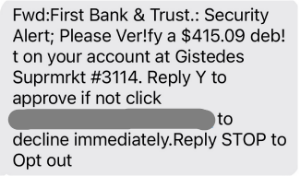
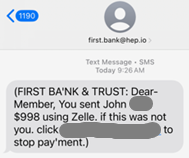
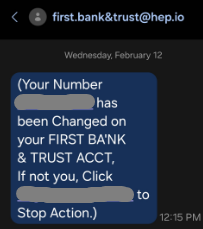
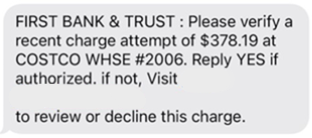
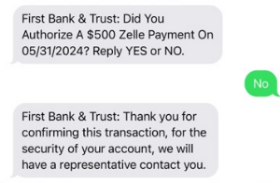
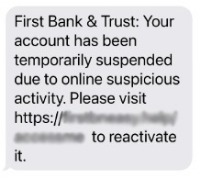
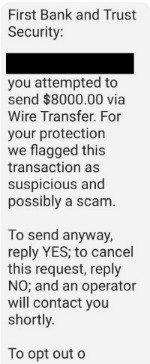
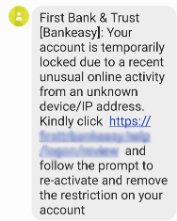
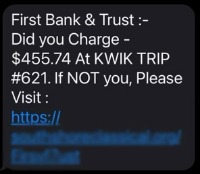
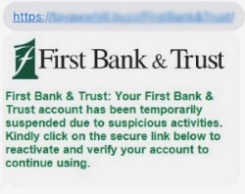
Do not click any link and do not provide any information. This is a phishing attempt and any information shared should be considered compromised.
Use extra caution when receiving communications like emails or texts with links. First Bank & Trust won't contact you in this manner about this type of account activity or asking you to log in to your account. Please also pay extra attention to email notifications from First Bank & Trust notifying you of external accounts being added that you did not authorize.
If you have questions regarding the status of your account, please call our Contact Center team directly at 800.843.1552.
Ways to Identify Phishing Attempts:
- Correspondence is unexpected and contains a sense of urgency.
- Offer comes from an unknown entity with whom you have no previous relationship.
- Contact information on correspondence does not align with published and trusted contact information for the business it appears to be coming from.
- Account number cited on correspondence does not match your actual account number.
- Sensitive information is requested, such as usernames, passwords, financial information, personal information, etc.




